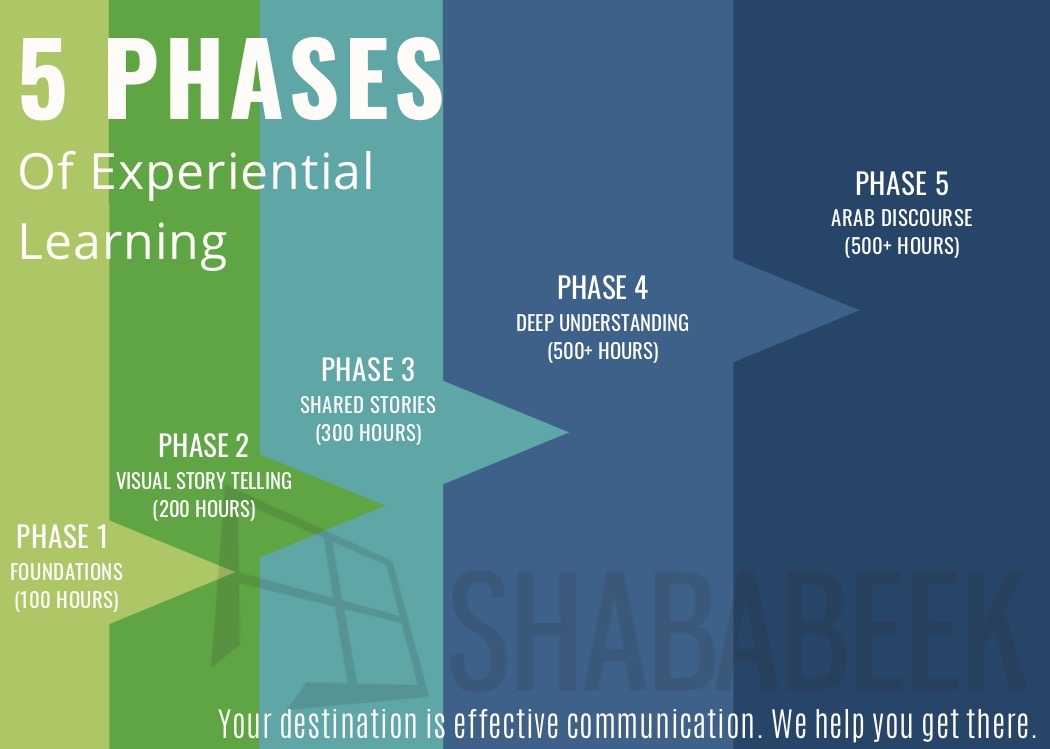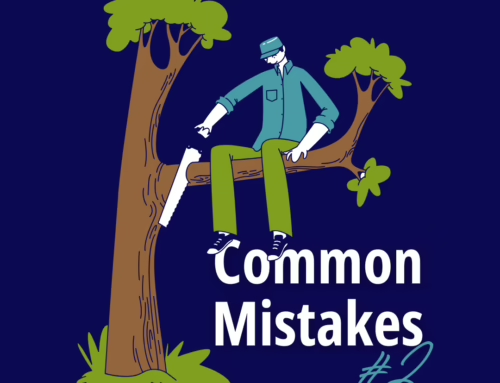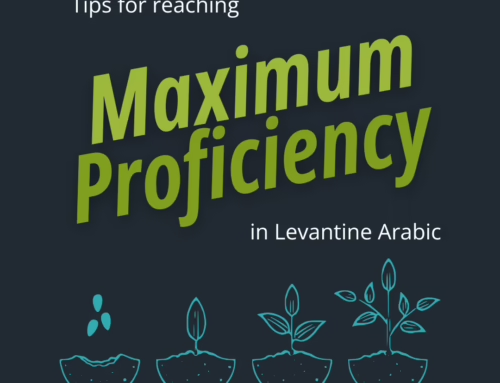Click PLAY to listen to the podcast episode…
…or read the transcript below.

During Phases 1-3, spend as many hours in live Arabic sessions as you can manage.
A relationship with someone committed to your growth every minute you are with them is far more constructive than time spent with locals in these phases. You are difficult to interact with as a beginner, so extensive time spent with locals who are not trained to help you learn, can be discouraging. It feels self defeating for both you and regular people in the community because you are hard to understand and not much can be exchanged. In the early phases of learning, you need to spend as much time as possible with someone who specializes in helping you develop conversation skills quickly. Ideally this means 20 hours weekly for your first 6-9 minimally.
I often meet people who have lived in the Middle East for extensive period of time that have still not reached beyond an beginner or intermediate level of fluency in Arabic. These individuals often have incredible opportunities after years of living here to contribute to the community they live in, but due to their language limitations, those opportunities are not as rich or as deep as they could be. Had they been able to set focused time to commit to learning the Arabic language and culture during their first year year before jumping into other obligations, their contributions to the world around them would be far more satisfying and the relationships would be deeper.
As an intermediate learner, in phase 4 and beyond you should now push yourself into beginning to spend more time with local people. Not at the expense of continued language learning at a decent pace, but one that does allow you to experience a broader scope of relationships.
In Phase 5, where you are working to begin understanding native discourses, or conversations between locals, I’m often encouraging learners to decrease hours, particularly if they plan to live here for an extended period of time. The reason to do so at this level is to exchange time learning lower frequency vocabulary for more time with people activating high frequency speech.
Time spent with locals informs what you will naturally begin to discuss with people in your personal life or occupational setting. This is the only phase we recommend that you stretch out over a long period rather than rushing to an imaginary finish line. The only exception to that is if someone says this is the only time I have for language learning and at x point in time I have to work full time or relocate and will not be able to continue taking regular session at that time.
If your goal is complete fluency at an educated level, never stop taking sessions. You’ll always need speech correction and in cultures like Jordan, friends and neighbors are not going to offer feedback or suggestions as to how you can improve your speech. Continuing to work with a paid tutor who is trained to correct as part of their job will help you begin to be braver and more precise with what you want to say to people. No one is going to say to you, “Hey Jon, did you know there is a better way to say what you just said to me?” If you do not continue to work on speech development with reflection and feedback, you are likely to plateau, or even worse, get into poor grammatical habits that you are not noticing because no one is point them out and helping you overcome them. At this point in learning, we would encourage you to spend as much as 60% of your time in sessions working on specific activities that strengthen speech development.




